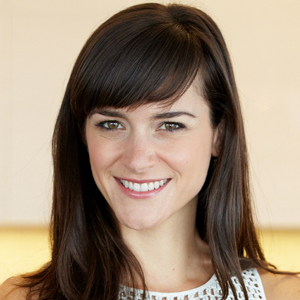When I was a dieter I always had a goal. Many goals.
“I want to weigh 120 pounds.”
“I want to be a size 2.”
“I want to eat fewer than 50 grams of carbs every day.”
I thought if I achieved these goals I would be happy. But the truth was that as long as I had these goals, I was frustrated.
I consider myself lucky that as a female I never confused my weight loss struggles with my self-worth. That is, I knew I didn’t need to be skinny to be a good scientist or a worthy girlfriend. But it was incredibly irritating to me that I was doing everything I was told to do––eat salads, avoid carbs, drink lots of water, exercise every day, etc.––and wasn’t getting the results I wanted.
Trending: Navy SEAL Secrets for High Performance Under Pressure
It wasn’t until I stopped dieting and systematically started transforming myself into a healthy non-dieter that the “success” I had been seeking finally materialized. Trading in my goals for a system––a healthstyle––quite literally changed my life.
The greatest adjustment I needed to make was mental. My attitude had always been to “work harder,” which is perpetually frustrating and demoralizing, not to mention exhausting.
When I stopped dieting my attitude changed to “solve problems.” Only then could I address all the little bad habits (like overeating on weekends after going out for drinks with friends) that were actually keeping me from doing what I wanted to do.
It is ironic that it took me so long to realize I needed a system for my health instead of goals (YES, I blame the dieting industry for brainwashing me), since setting up systems was how I was able to achieve success in every other part of my life.
The importance of setting up systems to achieve success became crystal clear to me recently when I read an article in the Wall Street Journal by Dilbert creator Scott Adams, called “Scott Adams’ Secret of Success: Failure” (hat tip to Tim Ferriss for the enlightening tweet).
“Throughout my career I’ve had my antennae up, looking for examples of people who use systems as opposed to goals. In most cases, as far as I can tell, the people who use systems do better. The systems-driven people have found a way to look at the familiar in new and more useful ways.”
In my professional life I’ve used the exact method Adams describes to put myself through school, become trained in a highly specialized field, then pivot to develop a new career that gets me far closer to my own definition of success.
My system has always been to find the pain points in my life and eliminate them. I never wanted to be “a doctor” or “a professor.” I just wanted to have a meaningful career that helps people in the most effective way possible. I started down the medical professional path, but when I realized I could contribute more with my words I shifted to writing. Only time, opportunity and my own creativity will determine how I forge ahead.
Trending: How to Make Menopause the Best Time of Your Life
My health is now (finally) on a similar path. I don’t have weight or size goals anymore––I haven’t fluctuated more than three pounds in half a decade. Instead I have developed a system to make sure I eat enough vegetables and other satisfying foods, get my 10,000 steps a day, make it to the gym four days a week, chew my food thoroughly, etc. I barely have to think about it, and only need to adjust when I travel, change apartments, or encounter other things that throw me off course.
For health, building a system is far more effective than setting goals on a purely practical level. Even more impressive though, is how it impacts you emotionally.
Adams writes,
“To put it bluntly, goals are for losers. That’s literally true most of the time. For example, if your goal is to lose 10 pounds, you will spend every moment until you reach the goal—if you reach it at all—feeling as if you were short of your goal. In other words, goal-oriented people exist in a state of nearly continuous failure that they hope will be temporary.
If you achieve your goal, you celebrate and feel terrific, but only until you realize that you just lost the thing that gave you purpose and direction. Your options are to feel empty and useless, perhaps enjoying the spoils of your success until they bore you, or to set new goals and re-enter the cycle of permanent presuccess failure.”
As a dieter I felt like I was in a constant state of permafailure. In those rare moments when I was at my goal, I would feel happy for awhile. But inevitably my success would slip away and the feeling of failure would return.
Trending: Microsoft, Google, and Beyond: What Business at the Cutting-Edge of AI Looks Like
At best, chronic dieting is frustrating and demoralizing. At worst, it is confidence-destroying and soul-crushing.
Now that my healthstyle is fully developed I feel completely different. Instead of frustrated, I feel like I’m in a perpetual state of creativity, achievement and personal growth. I learn more about new foods and recipes all the time, my healthstyle systems get more robust and effective, and my ability to stay on track feels unwavering. I know myself well, and I know what works. I feel confident and in control.
No diet in the world can offer that. And it feels amazing.
Pop over to Adams’ article to learn how to apply similar tactics to your career.
A version of this article originally appeared on Darya Rose’s website, Summer Tomato.































